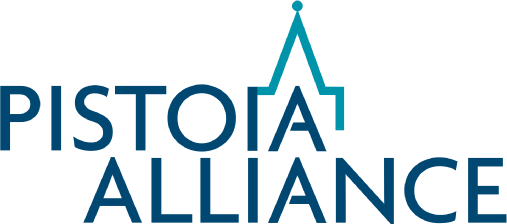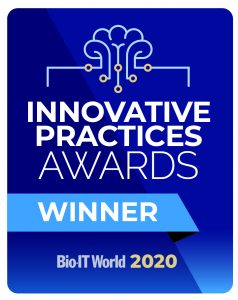Boston, 14 July, 2020: New survey results from the Pistoia Alliance, the Quantum Economic Development Consortium (QED-C) and QuPharm show almost one third (31 percent) of life science organisations polled are set to begin quantum computing evaluation this year. A further 39 percent are planning to evaluate next year or have quantum computing ‘on their radar’, while 30 percent have no current plans to evaluate.
The three organisations have collaborated to establish a cross-industry Community of Interest (CoI) to explore the opportunities for quantum computing to enhance the efficiency and effectiveness of biopharma R&D. The CoI aims to support companies that need help navigating the pathway to quantum computing and will facilitate collaboration between stakeholders, propose new ideas for quantum computing projects, and help interested parties define and articulate potential use cases.
“The interest in quantum computing across many sectors is high, yet most biopharmaceutical companies are only just beginning the journey and exploring the potential for accelerating discovery,” commented Emir Roach, one of the leaders of QuPharm. “Quantum computing is a completely new paradigm of computing, and our mission is to accelerate its implementation in life sciences. We are looking forward to working with the Pistoia Alliance and QED-C to help educate the life science and healthcare industry on the benefits.”
The survey showed that more than four out of five respondents (82 percent) believe quantum computing will impact the industry within the next decade. The same proportion of respondents believe discovery and development will be first to benefit from quantum computing deployments in the biopharmaceutical industry.
Quantum computing is likely to have a profound impact on precision medicine, enabling accelerated genomics and proteomics correlation, as well as the calculation of multiple probabilities and outcomes. It will also help organisations deliver new molecules and therapies to market faster by streamlining the discovery process and enabling quantum energy calculations for molecules, as predicted in the Pistoia Alliance’s 2030 vision report. In the future such technology could help the industry more quickly and accurately model disease pathways caused by novel coronaviruses.
The CoI has come together to help organisations address the key issues that need to be solved if the extraordinary benefits of quantum computing are to be realized. Potential barriers identified in the survey include a shortage of skills and a lack of access to quantum computing infrastructure (both cited by 28 percent of respondents) and the need for clearly defined use cases (31 percent).
“There are myriad opportunities for quantum computing in life sciences and healthcare, and through this community of interest the pharmaceutical and quantum computing sectors can work together to identify and communicate areas of early and high potential,” commented Celia Merzbacher, Deputy Director at QED-C. “While quantum computing is still emerging, now is the time to jointly define use cases and challenges in pharmaceutical discovery and development that quantum computing can address. Better understanding of the pharmaceutical bottlenecks can accelerate quantum computing hardware and software development for overcoming those.”
“Given the interest in quantum computing amongst our members, we wanted to create the community of interest to address their needs and questions. We are now looking for more companies to get involved and commit resources to help us explore use cases,” commented John Wise, a member of the Pistoia Alliance Operations Team supporting the new quantum computing CoI. “The shared-risk, shared-reward advantages of pre-competitive collaboration are an ideal way for companies to explore the opportunities and challenges of quantum computing. Those organisations that do not begin to evaluate quantum computing now are at risk of being left behind once its value is realised. Those that are equipped to adopt the technology when it matures will be significantly ahead.”
The research survey was conducted at the Community of Interest’s inaugural webinar in June 2020. More than 240 attendees from life science and quantum computing organisations across the US and Europe participated. To find out more about the CoI and help to steer future projects on quantum computing please contact John Wise at the Pistoia Alliance via john.wise@pistoiaalliance.org or Celia Merzbacher via celia.merzbacher@sri.com.
—ENDS—
About The Pistoia Alliance:
The Pistoia Alliance is a global, not-for-profit members’ organization made up of life science companies, technology and service providers, publishers, and academic groups working to lower barriers to innovation in life science and healthcare R&D. It was conceived in 2007 and incorporated in 2009 by representatives of AstraZeneca, GSK, Novartis and Pfizer who met at a conference in Pistoia, Italy. Its projects transform R&D through pre-competitive collaboration. It overcomes common R&D obstacles by identifying the root causes, developing standards and best practices, sharing pre-competitive data and knowledge, and implementing technology pilots. There are currently over 150 member companies; members collaborate on projects that generate significant value for the worldwide life sciences R&D community, using The Pistoia Alliance’s proven framework for open innovation. For further information visit www.pistoiaalliance.org
About Quantum Economic Development Consortium:
QED-C is an industry-driven consortium managed by SRI International and established in response to the 2018 National Quantum Initiative Act. Membership includes more than 120 U.S. companies from across the supply chain and more than 40 academic institutions and other stakeholders. The consortium seeks to enable and grow the quantum industry and associated supply chain. For more about QED-C, go to https://quantumconsortium.org/.
Media Contacts:
Spark Communications
+44 207 436 0420
pistoiaalliance@sparkcomms.co.uk
Tanya Randall
The Pistoia Alliance
+44 7887 811332
tanya.randall@pistoiaalliance.org
Reenita Malhotra Hora
SRI International
+1 415 531 8280




 Tanya Randall has joined us as Communications Lead and is our central point of contact for our communications strategy and campaign development. She has over 25 years’ experience in communications and marketing gained working with organisations in technology and life sciences. She started her career in high-tech PR and has been a Director and Founder at several leading global agencies. She has a BSc in Biological Sciences.
Tanya Randall has joined us as Communications Lead and is our central point of contact for our communications strategy and campaign development. She has over 25 years’ experience in communications and marketing gained working with organisations in technology and life sciences. She started her career in high-tech PR and has been a Director and Founder at several leading global agencies. She has a BSc in Biological Sciences.